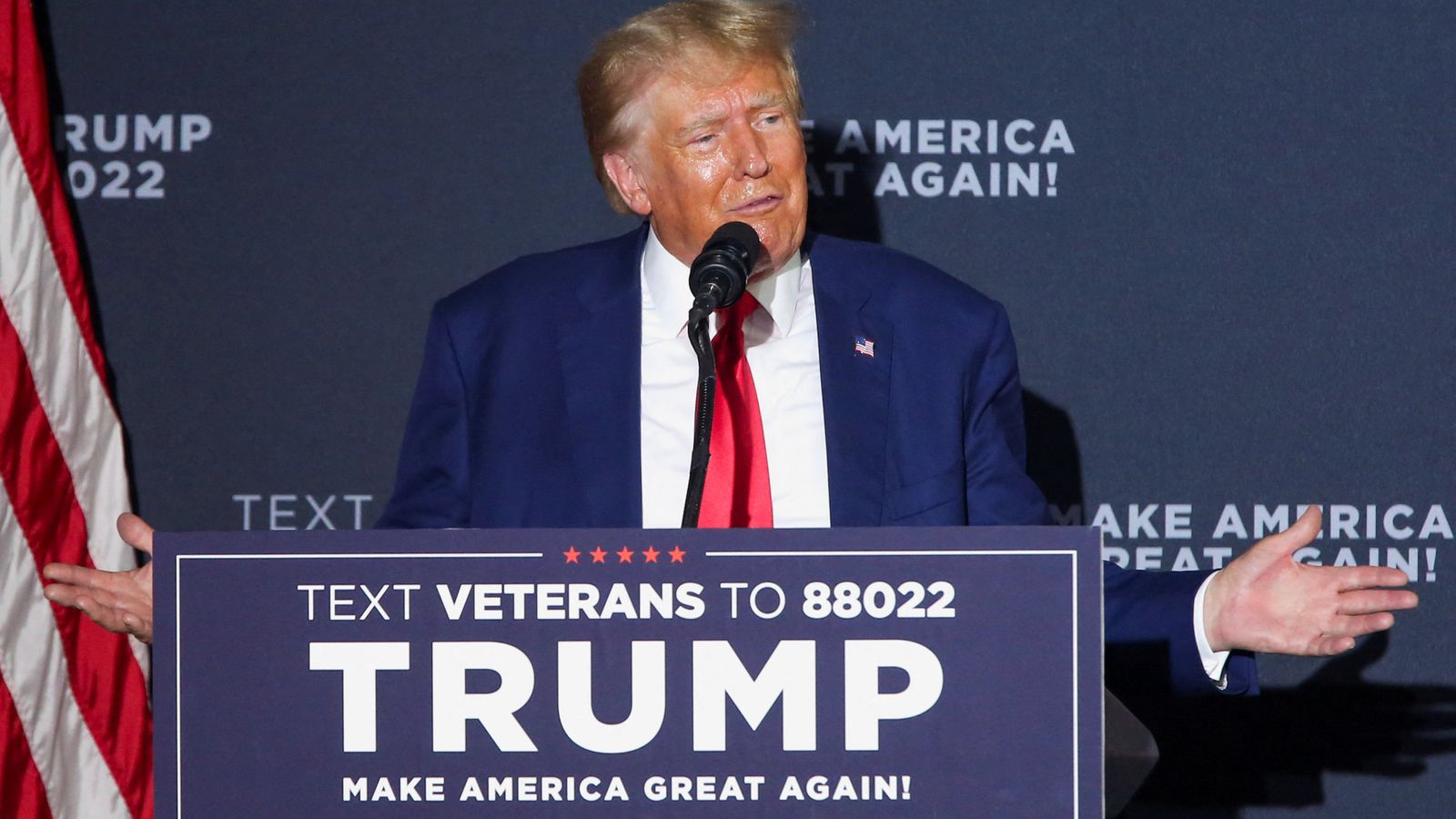Police in Georgia are investigating threats to members of the grand jury which voted to charge Donald Trump over alleged election interference.
The names and addresses of members of the jury were posted on a fringe website that reportedly often features violent rhetoric.
Two NBC News reporters who wrote about the grand jury incident also had their own details published online.
It comes after a court in Georgia charged Trump with trying to illegally overturn the 2020 election – which he lost and falsely claimed was fraudulent, claims repudiated by officials and some of his own party members.
Fulton County District Attorney Fani Willis brought 13 counts against Trump and 18 of his associates, including forgery and racketeering, which is most often used to target members of organised crime groups.
The Georgia indictment issued on Monday lists the names of the grand jury members but not their addresses or other personal information. It also listed 19 defendants and 41 criminal counts.
Click to subscribe to the Sky News Daily wherever you get your podcasts
The Fulton County Sheriff’s Office said: “Our investigators are working closely with local, state, and federal law enforcement agencies to track down the origin of threats in Fulton County and other jurisdictions.
“We take this matter very seriously and are coordinating with our law enforcement partners to respond quickly to any credible threat and to ensure the safety of those individuals who carried out their civic duty.”
Trump is the front-runner for the Republican nomination to run for president in the 2024 election and has called the indictment a political ‘witch hunt’.
He has until 25 August to surrender at Fulton County Jail
It’s one of four investigations into the former president, who is facing a total of 91 criminal charges concerning allegations of attempted election theft, mishandling classified documents and hush money payments.
Two trial dates have already been set for 2024.
The district attorney in Georgia has proposed the start of that trial should be March 4, just one day before Super Tuesday during which voters in more than a dozen states are set to cast their ballots for the Republican presidential nomination.
The government has also proposed January as the start date for the federal election interference trial.
But lawyers for the former president have asked to push the proceedings back until April 2026 due to what they say is the historic nature of the case, and the volume of discovery evidence they will have to sort through.


